Maafa 21: Black Genocide in the 21st Century est un film de genre Documentaire
Maafa 21: Black Genocide in the 21st Century (2009)
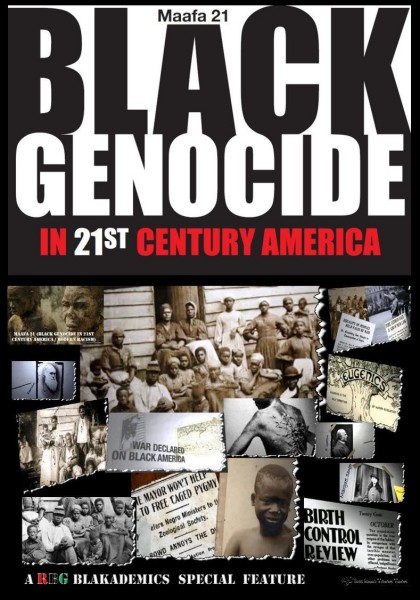
Si vous aimez ce film, faites-le savoir !
- Infos
- Casting
- Infos techniques
- Photos
- Vidéos
- Passages TV
- Citations
- Personnages
- Musique
- Récompenses
Genres Documentaire
Themes La grossesse, Le racisme, Sexualité, Documentaire sur la discrimination, Documentaire sur le droit, Documentaire sur une personnalité, Documentaire sur la santé
Note76%










Maafa 21: Black Genocide in 21st Century America is an anti-abortion documentary film made in 2009 by pro-life activist Mark Crutcher to turn African Americans against Planned Parenthood. The film, which has been enthusiastically received by anti-abortion activists, argues that the modern-day prevalence of abortion among African Americans is rooted in an attempted genocide or maafa of black people. Considered propaganda by journalist Michelle Goldberg and historian Esther Katz, the film fits into a pro-life advertising campaign aimed at African Americans, to argue against abortion and birth control.
The film repeats elements of an American conspiracy theory called black genocide, using many of the same arguments as black separatists such as the Black Panther Party in the early 1970s. It misuses statistics to induce in the viewer a fear of birth control and abortion. The film alleges that the eugenics movement targeted African Americans in the 19th and 20th centuries, that this was the basis for the creation of the American Birth Control League (now Planned Parenthood) by Margaret Sanger, and that this kind of race genocide continued in the form of the abortion-rights movement of the 20th and 21st centuries. The film puts forward the idea that Sanger was a racist who worked to reduce the population of blacks, and that Planned Parenthood is continuing this program. Sanger is implicated as an ally of Nazism and Adolf Hitler.
Critics of the film have countered many points made by the film, including how Sanger was not racist, how the eugenics movement in the US was not very concerned with African Americans, how blacks were largely in favor of birth control, and that blacks were having their own abortions long before it became legal. Instead of being a plot by Planned Parenthood, the high rate of abortion among African Americans comes from a correspondingly high rate of unplanned pregnancies. Esther Katz, director of NYU's Margaret Sanger Papers Project, has stated that the film presents a false depiction of Sanger's views and works. The film does not tell the viewer that Hitler banned birth control and abortion after he gained power.
Synopsis
The title comes from the Swahili term "maafa," which means tragedy or disaster and is used to describe the centuries of global oppression of African people during slavery, apartheid and colonial rule, while the number "21" refers to an alleged maafa in the 21st century (though beginning in the 19th), which the film says is the disproportionately high rate of abortion among African Americans. The film states that abortion has reduced the black population in the United States by 25 percent. It discusses some of Planned Parenthood's origins (formerly the American Birth Control League), attributing to it a "150-year-old goal of exterminating the black population." It attacks Margaret Sanger, along with other birth control advocates, as a racist eugenicist. The film features conservative African Americans who are associated with the Tea Party movement, including politician Stephen Broden, and Martin Luther King, Jr.'s niece Alveda King, who claims that Sanger targeted black people.Bande annonce de Maafa 21: Black Genocide in the 21st Century
Bluray, DVD
Streaming / VOD
Commentaires
Postez un commentaire :
Suggestions de films similaires à Maafa 21: Black Genocide in the 21st Century
Il y a 8965 ayant les mêmes genres cinématographiques, 10579 films qui ont les mêmes thèmes (dont 0 films qui ont les mêmes 7 thèmes que Maafa 21: Black Genocide in the 21st Century), pour avoir au final 70 suggestions de films similaires.Si vous avez aimé Maafa 21: Black Genocide in the 21st Century, vous aimerez sûrement les films similaires suivants :
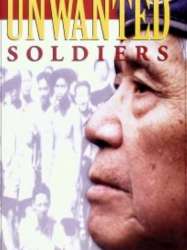
Unwanted Soldiers (1999)
Origine Canada
Genres Documentaire
Thèmes Le racisme, Documentaire sur la discrimination, Documentaire sur le droit, Documentaire sur la guerre, Documentaire historique, Documentaire sur une personnalité, Documentaire sur la santé, Politique, Documentaire sur la Seconde Guerre mondiale

Eye of the Storm (1970)
Origine Etats-Unis
Genres Documentaire
Thèmes Maladie, Le racisme, Documentaire sur la discrimination, Documentaire sur le droit, Documentaire sur une personnalité, Documentaire sur la santé, Folie
Note82%





William Peters follows Jane Elliott's conversely controversial and lauded schoolroom exercise of dividing an otherwise homogenous group of elementary school kids by their eye color. It was a demonstration of prejudice and discrimination meant to teach the students about the unfairness of racism, developed as a response to the shooting of Martin Luther King in April 1968. The film records Elliott in 1970 while conducting the exercise for the third time.
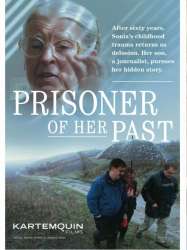
Prisoner of Her Past (2010)
, 57minutesOrigine Etats-Unis
Genres Documentaire
Thèmes Maladie, Le racisme, Religion, Documentaire sur la discrimination, Documentaire sur le droit, Documentaire sur la guerre, Documentaire historique, Documentaire sur une personnalité, Documentaire sur la religion, Documentaire sur la santé, Folie, Le handicap, Politique, Religion juive, Documentaire sur la Seconde Guerre mondiale
Note74%





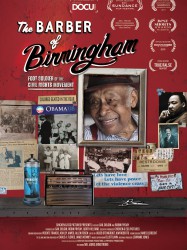
Réalisé par Gail Dolgin
Genres Documentaire, Historique
Thèmes Le racisme, Documentaire sur la discrimination, Documentaire sur le droit, Documentaire sur la guerre, Documentaire historique, Documentaire sur une personnalité, Documentaire sur la politique, Documentaire sur la santé, Politique
Note6%





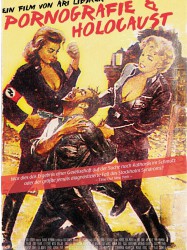
Stalags (2008)
, 1h3Origine Israel
Genres Guerre, Documentaire, Historique
Thèmes Le racisme, Religion, Sexualité, La pornographie, Documentaire sur le monde des affaires, Documentaire sur le cinéma, Documentaire sur la discrimination, Documentaire sur le droit, Documentaire sur la guerre, Documentaire historique, Documentaire sur une personnalité, Documentaire sur la religion, Politique, Religion juive, Documentaire sur la Seconde Guerre mondiale
Note66%





Les Stalags sont des livres de poche dont les intrigues tournent autour de vigoureuses femmes officier SS qui abusent des prisonniers. Au cours des années 1960, parallèlement au procès contre le criminel de guerre nazi Adolf Eichmannl, les ventes de cette littérature pornographique ont battu tous les records en Israël et des centaines de milliers d’exemplaires ont été vendus dans les kiosques. La popularité des Stalags a faibli seulement après le procès contre leurs auteurs qui ont été accusés de distribution pornographique antisémite. Ce film traite de ce phénomène, et confirme aussi que la combinaison de pornographie et Holocauste apparaît également dans la littérature canonique sur l’Holocauste et qui continue jusqu’à présent à faire partie de la représentation de l’Holocauste en Israël.
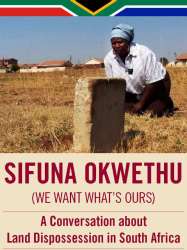
Sifuna Okwethu (2011)
Origine Etats-Unis
Genres Documentaire
Thèmes Afrique post-coloniale, Le racisme, Documentaire sur la discrimination, Documentaire sur le droit, Documentaire sur une personnalité, Documentaire sur la politique, Politique
The film tells the story of both sides claiming the same land as their own. The Ndolilas family’s land was taken by the apartheid government in the 1970s without compensation, and ever since then they have been on a quest to get it back. Standing in their way are working class black homeowners who purchased portions of the Ndolila's land during apartheid. For the homeowners, the land and houses they have legally purchased are a reward for their hard work and the fulfillment of their hopes and dreams for a better life in the new democracy. For the Ndolilas, the land is part of their family legacy and hence deeply intertwined with their identity. Both sides have a legitimate right to the land, and the film encourages viewers to think about whose rights should prevail.
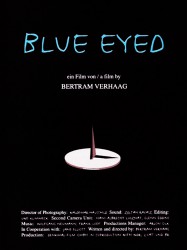
Blue Eyed (1996)
, 1h30Genres Documentaire
Thèmes Le racisme, Documentaire sur la discrimination, Documentaire sur le droit, Documentaire sur une personnalité
Note81%





 , 1h14
, 1h14Réalisé par Liz Garbus
Origine Etats-Unis
Genres Documentaire
Thèmes Politique, Le racisme, Documentaire sur la discrimination, Documentaire sur le droit, Documentaire historique, Documentaire sur une personnalité, Documentaire sur la politique, Politique
Note73%






Being Osama (2004)
Réalisé par Mahmoud Kaabour
Origine Canada
Genres Documentaire
Thèmes Les attentats du 11 septembre 2001, Le racisme, Religion, Le terrorisme, Transport, Aviation, Documentaire sur la discrimination, Documentaire sur le droit, Documentaire sur la guerre, Documentaire historique, Documentaire sur une personnalité, Documentaire sur la politique, Documentaire sur la religion, Documentaire sur les technologies, Documentaire sur le terrorisme, Documentaire sur les villes, Politique, Religion musulmane, Film catastrophe, Film de catastrophe aérienne, Langues et la traduction, Détournement d'avion
Note70%





The documentary details the lives of six Montreal Arab men, all with the first name "Osama":

12th & Delaware (2010)
, 1h20Réalisé par Heidi Ewing, Rachel Grady
Origine Etats-Unis
Genres Documentaire
Thèmes La grossesse, Sexualité, Documentaire sur une personnalité, Documentaire sur la santé
Note72%





 Connexion
Connexion